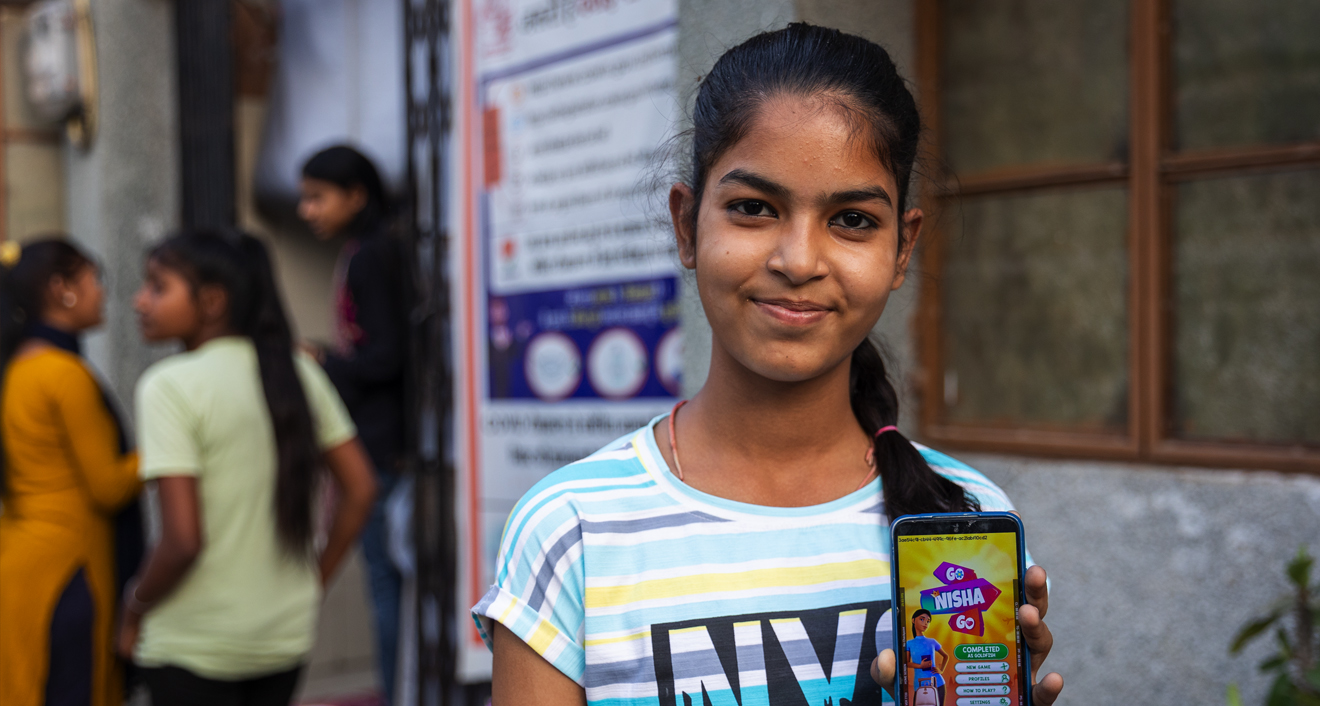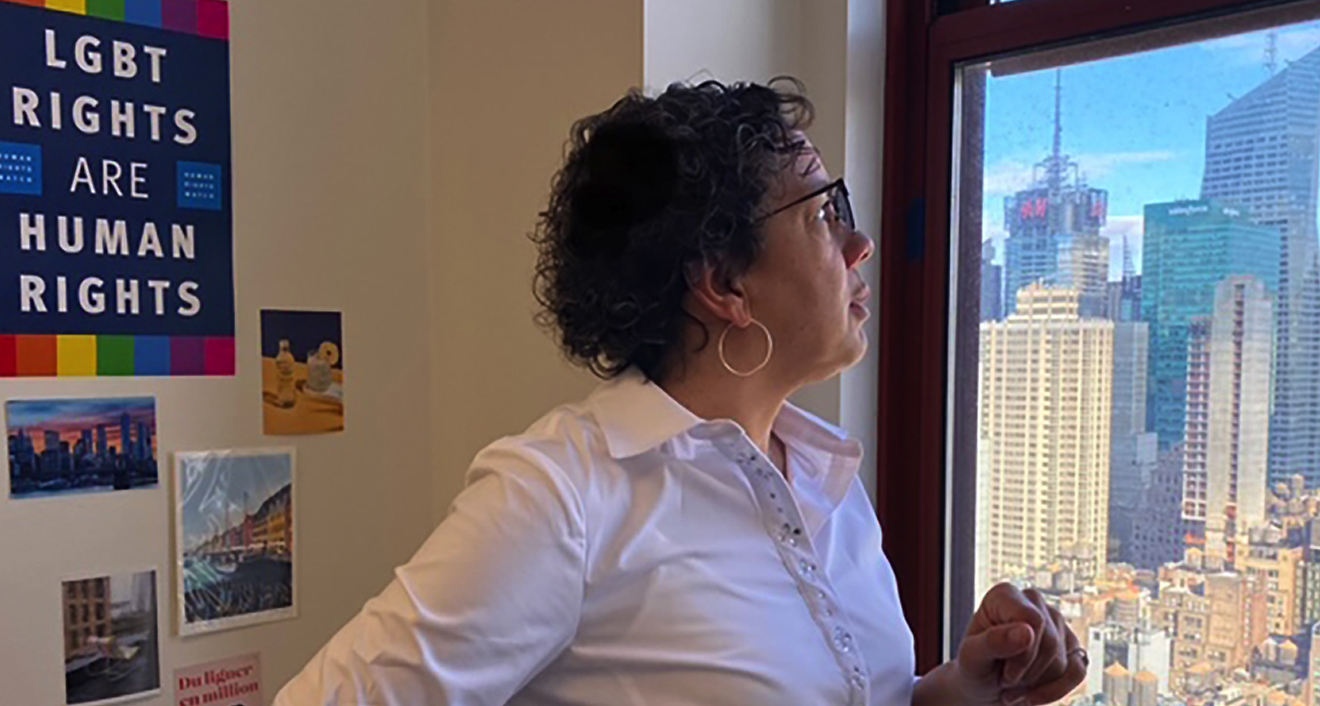
Game of Choice, Not Chance: A Digital Platform for Social Impact

If the choices we make shape our lives, how do we help teenagers make better life decisions? As cofounder of the women-owned social impact firm Howard Delafield International (HDI), Susan Howard ’84 meets them where they are: on their phones.
HDI creates mobile video games and apps that are designed to positively influence adolescent behavior, whether helping prevent unwanted pregnancies, navigate and avoid intimate partner violence, or improve financial literacy. “We’re adding a new tool to the global health toolbox,” Howard says, “to promote behavior change, create demand for products and services like this, and strengthen health systems.”
The first games in HDI’s suite of games, Go Nisha Go and Go Bro, offer adolescents in India a simulated experience focused on building good decision-making and negotiation skills. These games cultivate a player’s agency to navigate difficult life choices in safe, simulated environments, exploring important topics such as adolescent health, careers, education, relationships, and mental health.
The inspiration for the games, Howard says, came from her mother, who is of Indian heritage. Though Howard's mother was accepted to college in the United States, her parents required that in order to attend, she be married so that she would have a male to accompany her.
“What she had the agency do was to negotiate with her parents, knowing that she had to find a middle ground. She said, ‘How about I get engaged before I get married?’ They accepted that.”
But Howard wondered, what if her mom didn’t have the agency to do what she did? “What if she accepted their wishes and didn’t pursue education?” The games help players explore the outcomes of different paths and choices through avatars that they customize.
Since its inception in 1995, HDI has impacted more than 250 million people across 25 countries. The company has developed social impact innovations and solutions addressing infectious diseases, nutrition, water and sanitation, family planning, and HIV/AIDS. According to HDI data, Go Nisha Go players were 290 percent more likely to refuse sex, delay marriage, and choose a life partner of their choice. “We’re able to prove through rigorous research that games work,” Howard says, noting that Howard Delafield International partnered with Jessica Posner ’09 and her company Girl Effect for consumer insight research.
Go Nisha Go is the first game for which key indicators have been measured by a randomized controlled trial—“the gold standard in research,” Howard says—measuring areas such as agency (or the ability to choose a partner and to negotiate staying in school) and fertility awareness, helping girls better understand their risks for pregnancy, menstrual cycles, and contraceptive methods in order to mitigate early childbearing and early marriage. For adolescent boys, Go Bro encourages allyship with girls and helps boys deal with the unique pressures they face as young men.
At its core, the Game of Choice, Not Chance platform is about cultivating critical thinking skills, and setting a foundation for better decision-making. Says Howard, “What are the other options? What are the alternatives? What other perspectives could there be? That’s critical thinking. Asking: What else, what if? How could this be different?”




